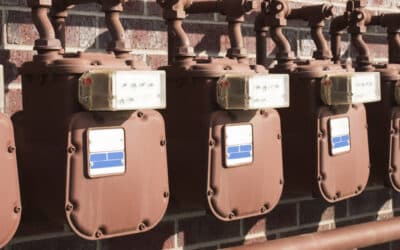While renting may remove many of the headaches and hassles of home ownership, you’re still making a commitment and entering into a legal contract. It’s important, therefore, that you do your due diligence and make informed decisions.
To help you, here are seven of the most common mistakes most apartment renters make, along with suggestions for how to avoid them.
Mistake #1: Not Identifying Your Wants and Needs First
Your apartment is more than a place to eat and sleep. It’s your home base in the community. The better you match your rental to your wants and needs, the happier your experience. And yet, renters often fail to think about and prioritize what they need in a rental.
Here’s a short list of considerations:
- The specific neighborhood you want to be in (i.e. location)
- Commute time to work
- Access to public transportation and highways
- Parking (if needed)
- Lifestyle amenities (grocery stores, restaurants, bike paths, parks, nightlife, children’s playgrounds)
- Noise Considerations
- Building features (high rise, ground floor units, garden-style)
- Security considerations (surveillance system, deadbolt locks, lighting, etc.)
- Pet policies

Mistake #2: Renting a Unit Sight Unseen
You might be surprised by how many people rent an apartment based on a description and a couple of photographs. Sometimes distance makes it difficult to see an apartment prior to moving. If you find yourself in this situation, try to ask friends or family who might live nearby who can be your eyes on the ground. Check online for reviews of the complex you’re considering. When possible, it’s always best to see the apartment in person. You can see many apartments in the course of several days. We have written an easy-to-follow step-by-step guide on how to tour an apartment.
Mistake #3: Not Checking Rental Management’s Reputation
Not all rental companies are created equal. In fact, there are even scammers who will try to rent a single unit to multiple tenants. They’ll take your money and be long gone before you arrive to sign the lease and pick up the key.
Do your homework and check the management’s reputation. This is particularly important if you have to rent sight unseen.
It’s also nice to know how other renters in the building feel about the management. Consider asking them: Are the managers and landlord reliable? Are they good about maintenance? Do they keep the building and grounds in good condition?
Mistake #4: Not Understanding Your Lease Terms
A big mistake people make is failing to read everything when signing the lease documents.
You’ll want to make sure that you fully understand policies for everything, including late rent, subletting, pets, roommates, visitors, parking, etc. Because rental laws vary by state and even city, make sure you know about anything that may become a problem later.
Do your research. Make sure to ask the right questions before signing the lease.

Mistake #5: Not Documenting the Condition of the Unit Before Moving In
Ask if there is a move-in inspection sheet. Prior to moving in, do a walkthrough with the landlord and note any damages. This will help with a dispute on damages that might arise on move out.
Mistake #6: Not Factoring in Additional Costs
When first selecting an apartment, many people focus on the monthly rental fee. They forget about the expenses and fees above and beyond the rent. When considering an apartment, make sure you know the full extent of your costs: utilities, parking, gym facilities, storage, etc.
Mistake #7: Skipping Renters Insurance
The average renter has between $20,000 and $30,000 worth of possessions, and yet about 60% of renters fail to buy renters insurance. They assume that the landlord or property manager’s insurance will protect their property. Wrong. Generally, the rental property’s insurance does not cover your personal property from fire, theft or water damage.
Spending between $15 and $50 a month to offer possible protection on your property is a small price for some peace of mind. As an added benefit, many policies also cover liability in case someone is injured in your apartment (and it’s covered in the policy). And should the unthinkable happen and your apartment becomes uninhabitable, renter’s insurance may pay for you to live elsewhere until you can return to your apartment. Renter’s Insurance is so important that many landlords require their tenants to have it. Be sure to read and understand your policy in entirety before purchasing.
Avoid Common Mistakes
To increase your likelihood of renting the right apartment, make sure you assess your needs and wants before moving forward on a rental. If at all possible, visit the apartment yourself. Also, check out the reputation of the apartment’s management and understand the lease terms before you sign on the dotted line. Finally, tally up your living expenses that go beyond the rent. Don’t forget about renter’s insurance. If you take these steps, you’re more likely to be happy in the long run.





